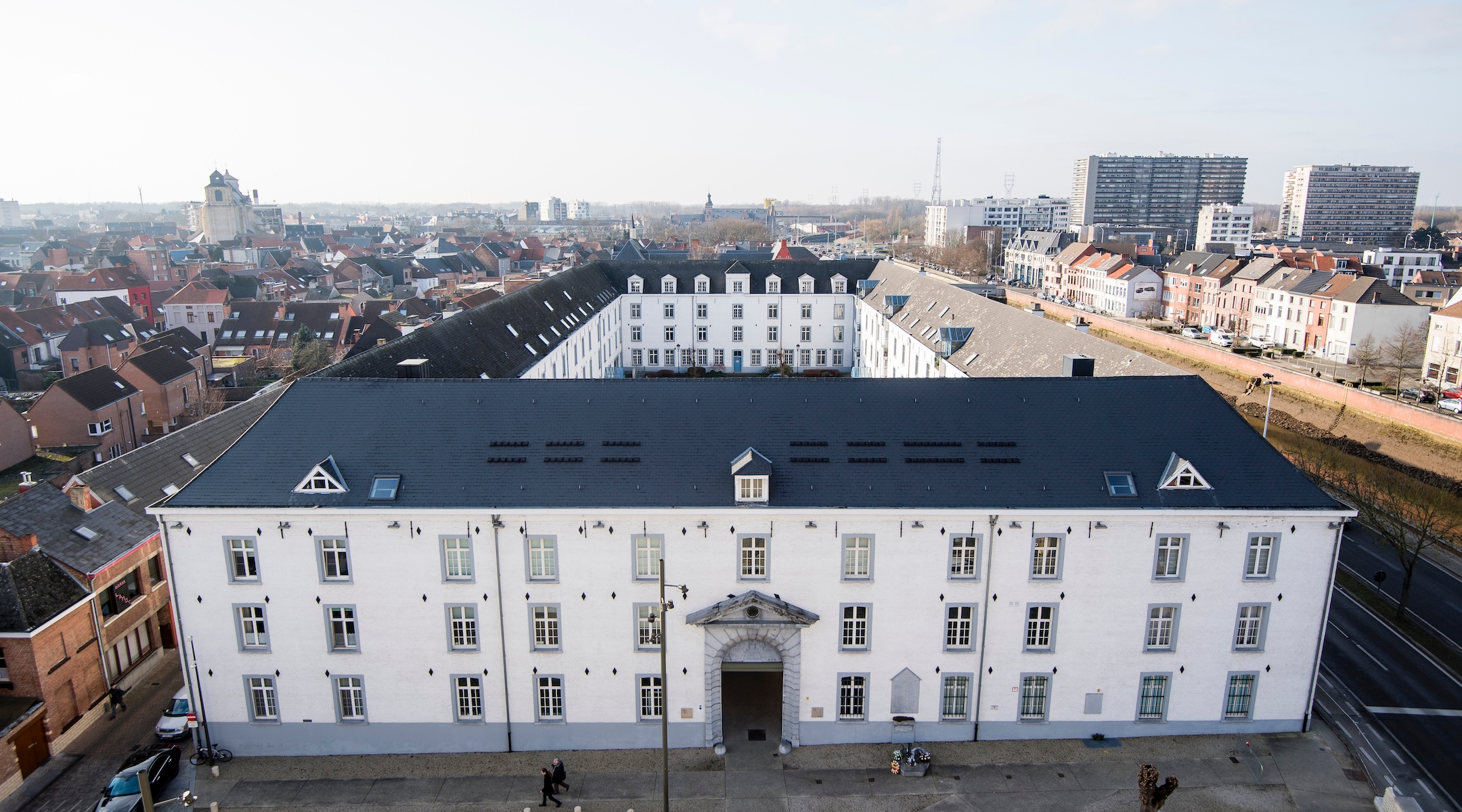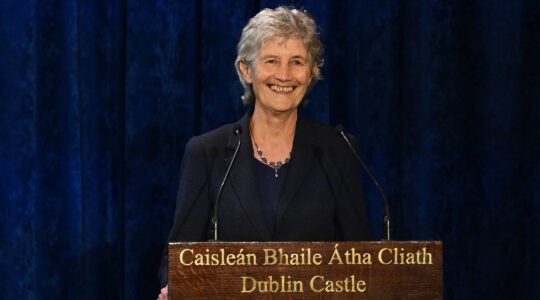(JTA) — When Belgium’s national Holocaust museum opened in 2012, it was seen as significant progress.
In a country that has a record of local police helping the Nazis murder a quarter of the kingdom’s Jews — and two very culturally distinct regions that like to shoulder more of the Holocaust blame on each other — commemorating the genocide has never been comfortable.
Now some Belgian lawmakers are worried about the museum’s future after it has been swept up in the pan-European debate about attitudes toward Israel.
On Tuesday, nine historians resigned from the museum’s scientific council (the total is now 10, as another stepped down later) to protest the cancellation of an event honoring a vocal Israel critic.
Brigitte Herremans, an activist who has called on the European Union to sanction Israel and its citizens, and has accused Israel’s supporters of “inflating anti-Semitism” to deflect criticism, was set to be honored as an “ambassador of peace” by the Catholic aid group Pax Christi. In 2017, Pax Christi called on the European Union to “suspend economic relations” with Israel until it “respects international law.”
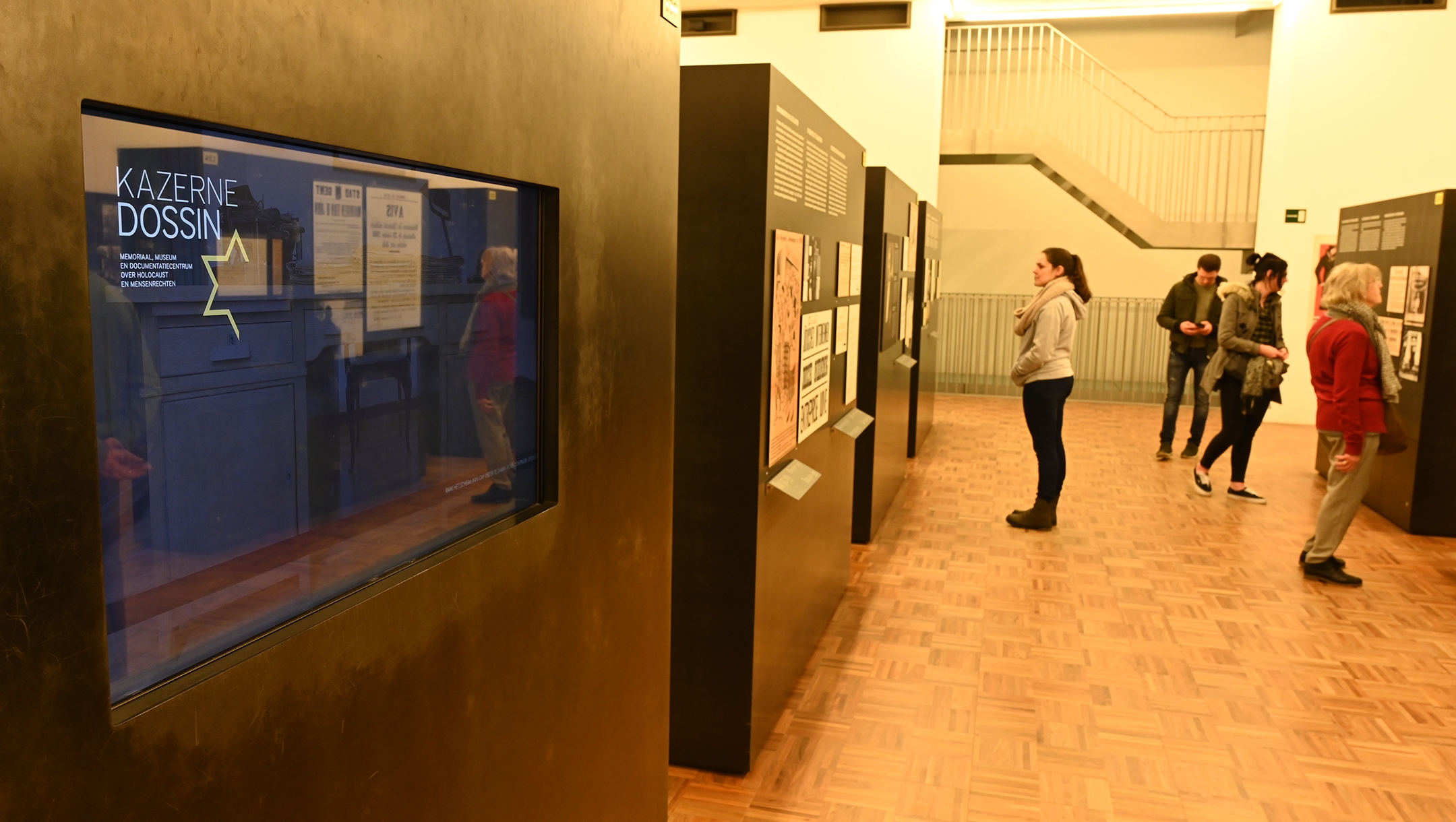
A woman reading about Belgian Jews at the Kazerne Dossin Holocaust museum, Dec. 22, 2019. (Cnaan Liphshiz)
The Kazerne Dossin museum, a pentagram-shaped building with four stories and about 50,000 square feet of floor space, agreed to host the event in November. But Belgium’s Jewish community protested vocally and the event was canceled within a few days of the outcry.
In an interview Tuesday with the VRT broadcaster, Antwerp University Rector Herman Van Goetthem, one of the scholars who resigned, said Herremans was “thrown outside the museum like a dog.”
Van Goetthem also noted the resignation in November of the museum’s former director, Christophe Busch. He said the board was resistant to Busch’s desire to broaden the museum’s scope beyond merely the Holocaust to include current human rights issues.
The issue of how strictly a Holocaust museum should hold to representing the Jewish (and Romani) perspective is not limited to Belgium. Last year, the director of Berlin’s Jewish museum resigned after the museum tweeted a link to an article defending the Boycott, Divestment and Sanctions movement against Israel that the German parliament declared to be anti-Semitic the previous month. The Jewish museum of Munich was accused last July of libeling Israel in an exhibition that suggested that it is an occupying force.
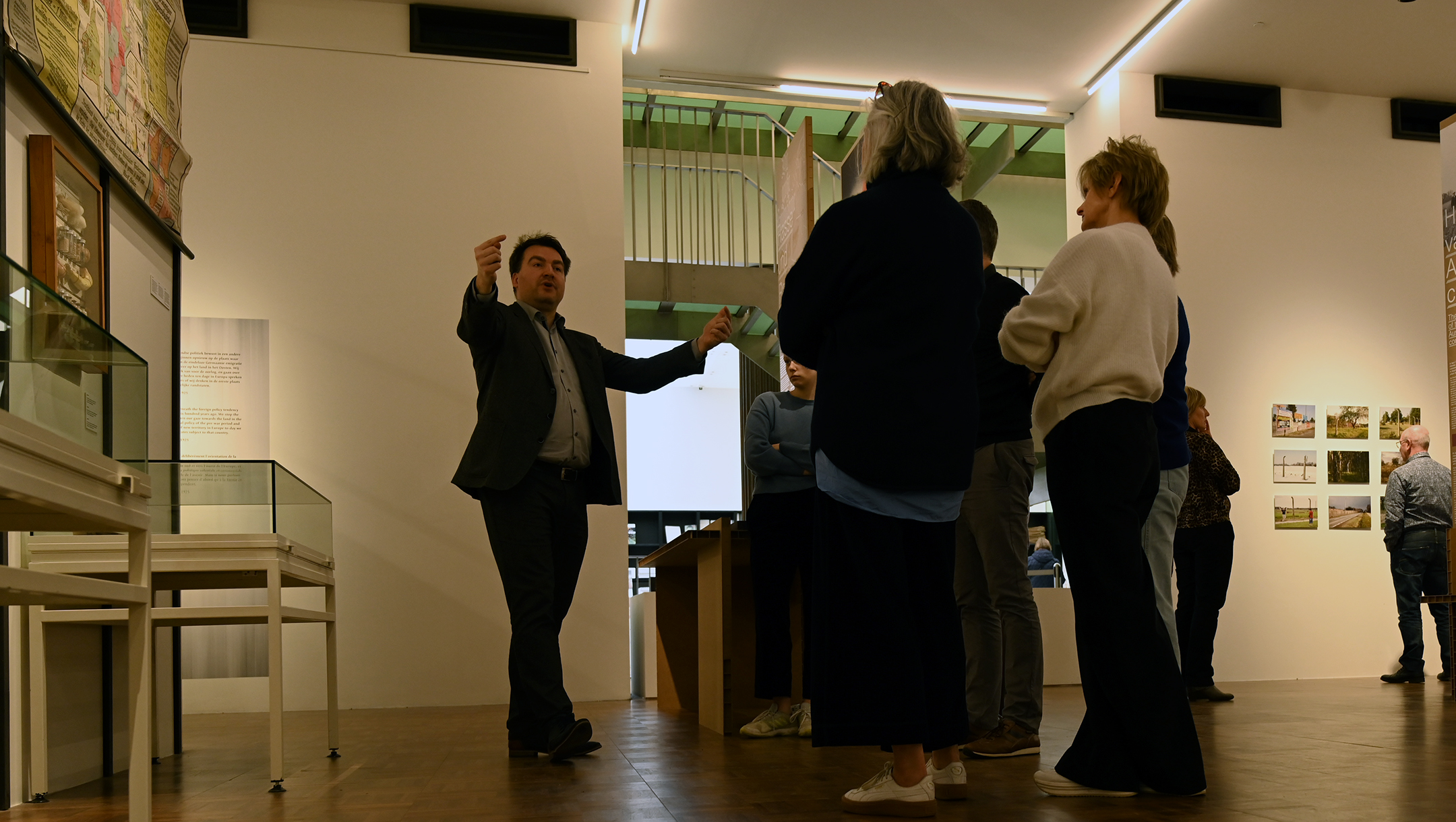
A guide talks about Auschwitz at the Kazerne Dossin Holocaust museum. (Cnaan Liphshiz)
The board of Kazerne Dossin, which is funded by the Flemish region’s center-right and pro-Israel government, did not mention Herremans in a statement about the resignations, but its language suggested that it will continue to resist initiatives that it believes will dilute its core mission of commemorating the genocide perpetrated by the Nazis and their collaborators against Jews and other victims.
The institution’s work “is fully within the framework of the vision and mission that is supported by the Flemish government, which is to build on the historical story of the persecution of the Jews and the Holocaust in the Belgian context and to reflect on current phenomenons of racism and discrimination,” the museum wrote.
During a debate in the Flemish parliament prompted by the resignations, several lawmakers from rival parties expressed concern for the museum’s status and its future.
Tom de Meester of the Labor Party warned that the cancellation of the Pax Christi event shows “there’s a weaponizing of Kazerne Dossin by a political wing to give legitimacy to the policies of Israel.”
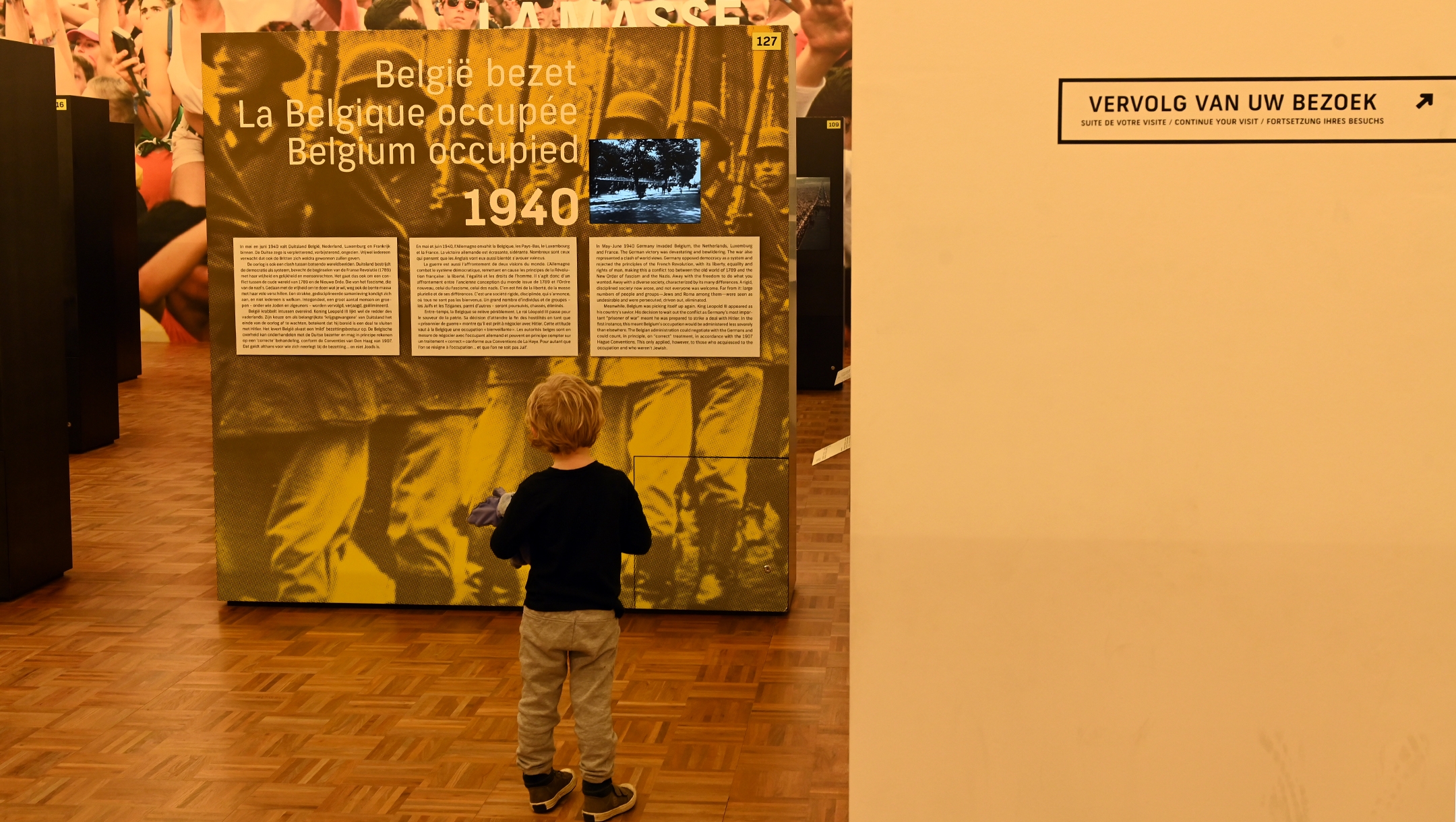
The Kazerne Dossin Holocaust museum near Antwerp has four floors that deal with various stages of the extermination of one in every four of the kingdom’s Jews. (Cnaan Liphshiz)
But the museum’s move also has prominent supporters.
“I don’t belong to the Jewish community, but when I heard that Ms. Herremans will get a peace prize at the museum, I found it pure provocation,” Mia Doornaert, a Belgian baroness and former president of the International Federation of Journalists, told VRT. “She is not just a researcher, she’s a pro-Palestinian and anti-Israel militant, and that mixes issues that must not be mixed.”
Asked by Belgium’s Radio 1 about the resignations, Michael Freilich, a Jewish lawmaker from Antwerp for the ruling New Flemish Alliance party, said “Good riddance.”
Belgium, he added, “has enough experts with more respect for the Jewish community.”
But he also told the Jewish Telegraphic Agency in an interview that he is worried about how the debate about the museum “is becoming politicized.”
To Freilich, the resignations “will bring back the peace” to Kazerne Dossin, he told Radio 1.
“Now we can finally move ahead with bringing in all kinds of content, but with respect and understanding,he said, “and we can avoid drawing parallels between for example the Israeli-Palestinian conflict, which is about land, to the genocidal murder of Belgian Jewry.”
JTA has documented Jewish history in real-time for over a century. Keep our journalism strong by joining us in supporting independent, award-winning reporting.
